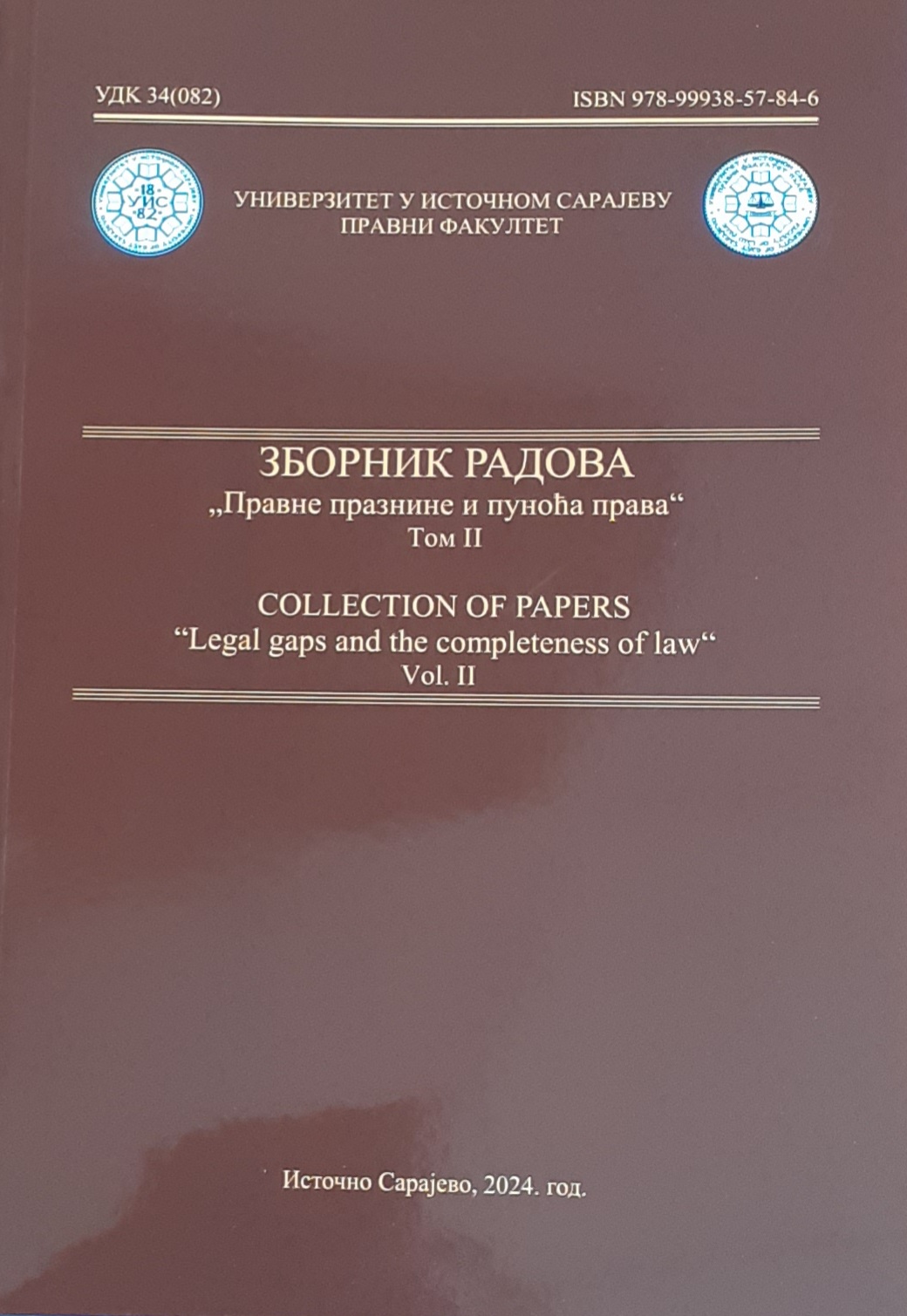Правотворачки извори
The Law-Making Sources
Author(s): Miloš Prica
Subject(s): Law, Constitution, Jurisprudence
Published by: Правни факултет Универзитета у Источном Сарајеву
Keywords: Rational interpretation of legal norms and legal principals; Political assessment of expediency; Free will and administrative assessment of expediency;
Summary/Abstract: In the author’s opinion, a legal order has the following structure: 1) The basic (constituent) entities of a legal order include: a) a legal subject; b) subjective rights; c) a legal duty; d) a legal object (subject-matter); e) a legal act; f) state action; g) legal action; and f) legal facts. All these elements have equal (constitutive) significance in a legal order, and it would be entirely wrong to put them in a hierarchical chart; 2) the subject matter of legal regulation, including legal goods (assets) and legal interests; 3) the law-making sources, including rational interpretation of legal norms and legal principles, political assessment of expediency, free will, and administrative assessment of expediency; 4) the forms of legal regulation, including a) direct dynamic forms: general legal acts, individual legal acts, state actions, and legal actions; b) direct static forms: legal principles, legal norms and legal standards; and c) higher static (legal-science) forms: legal matters, legal situations and legal institutes. Law-making sources reflect the subject-matter of a legal order in the process of the creating and applying the law, determining the causa (rationale) of its action. The functioning of a legal order cannot be precluded by a pyramidal course of creation and application of general legal norms as “formal legal sources”, bearing in mind that the principle of legality in material sense is a dominant principle in all areas of a legal order. Substantive law may also be created outside the institutional order of public authorities, as an activity that does not represent a concretization of legal norms as regulating legal attitudes, in the area of free will and private interest in an absolute sense. On the other hand, the institutional order of public authorities is necessarily broader in relation to substantive (statutory) law, taking into account the political activities of state authorities, which can also be above the law.
Book: Зборник радова"Правне празнине и пуноћа права" Том II
- Page Range: 114-133
- Page Count: 20
- Publication Year: 2024
- Language: Serbian
- Content File-PDF

